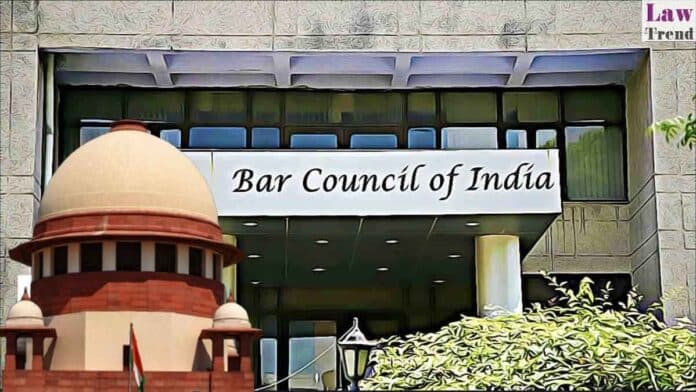The Supreme Court has asked the Bar Council of India (BCI) to propose an independent, impartial, and transparent mechanism for the annual or periodical inspection of law colleges and universities across the country.
A bench of Justices Surya Kant and Joymalya Bagchi passed the direction while issuing notice in a special leave petition challenging a Bombay High Court judgment that had upheld the BCI’s powers under the Rules of Legal Education, 2008.
The petition arises out of a challenge filed by the Nathibai Damodar Thackersey Women’s University Law School against the BCI’s notice of inspection and a subsequent show-cause notice threatening to suspend its degree recognition for refusing to comply.
Supreme Court’s Direction
While admitting the matter, the apex court observed:
“Meanwhile, the Bar Council of India shall suggest an independent, impartial and transparent mechanism for annual/periodical inspection of the Law Colleges/Law Universities.”
Background of the Dispute
The controversy began in 2019 when the petitioner law school challenged the BCI’s authority to inspect its premises, arguing that the inspection rules framed by BCI were ultra vires the Advocates Act. The petitioner contended that the BCI had exceeded its powers under the Act by creating inspection-related provisions in the 2008 Rules.
It was also argued that since the university was governed under the Maharashtra Public Universities Act, 2016, it was the State’s regulatory framework that applied to its functioning—not that of the BCI.
Bombay High Court’s Verdict
Rejecting these arguments, a division bench of Chief Justice Alok Aradhe and Justice M.S. Karnik upheld the validity of the Legal Education Rules framed by BCI.
The High Court observed that:
- Section 7(1) of the Advocates Act imposes a duty on the BCI to maintain the standards of legal education.
- Section 49(1) empowers the BCI to make rules to discharge its functions, including rules for the inspection of universities.
The Court also relied on the Supreme Court’s ruling in Bar Council of India v. Bonnie Foi Law College, which had reinforced BCI’s leading role in promoting and regulating legal education.
The bench rejected the contention that the BCI’s rules violate Articles 14 or 19(1)(g) of the Constitution and held that no law school could claim immunity from inspection by the BCI.
Addressing the argument based on the Maharashtra Universities Act, the Court held that it was a general law applicable to universities in the State, whereas the Advocates Act is a special law enacted by Parliament. In case of any inconsistency, the special law would prevail, the Court said.




